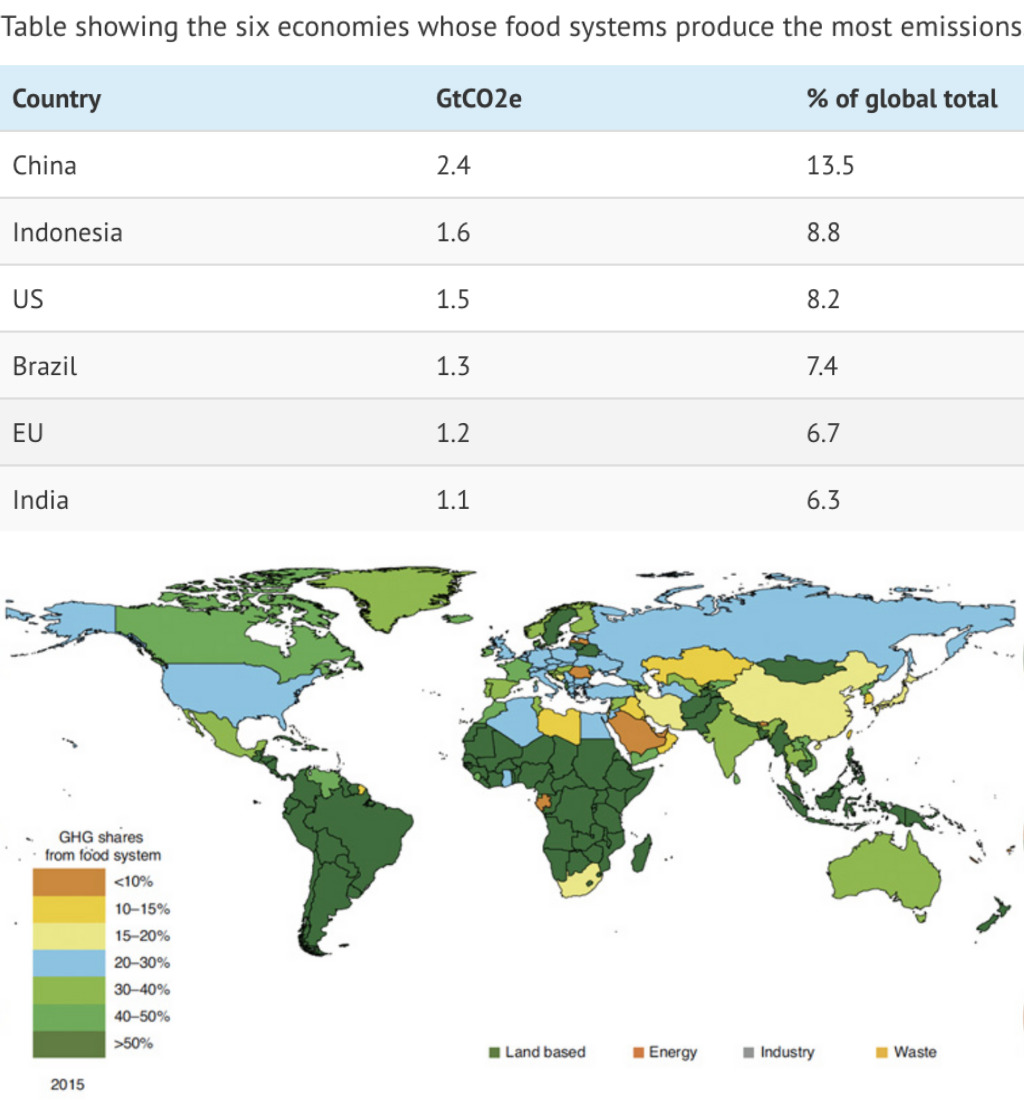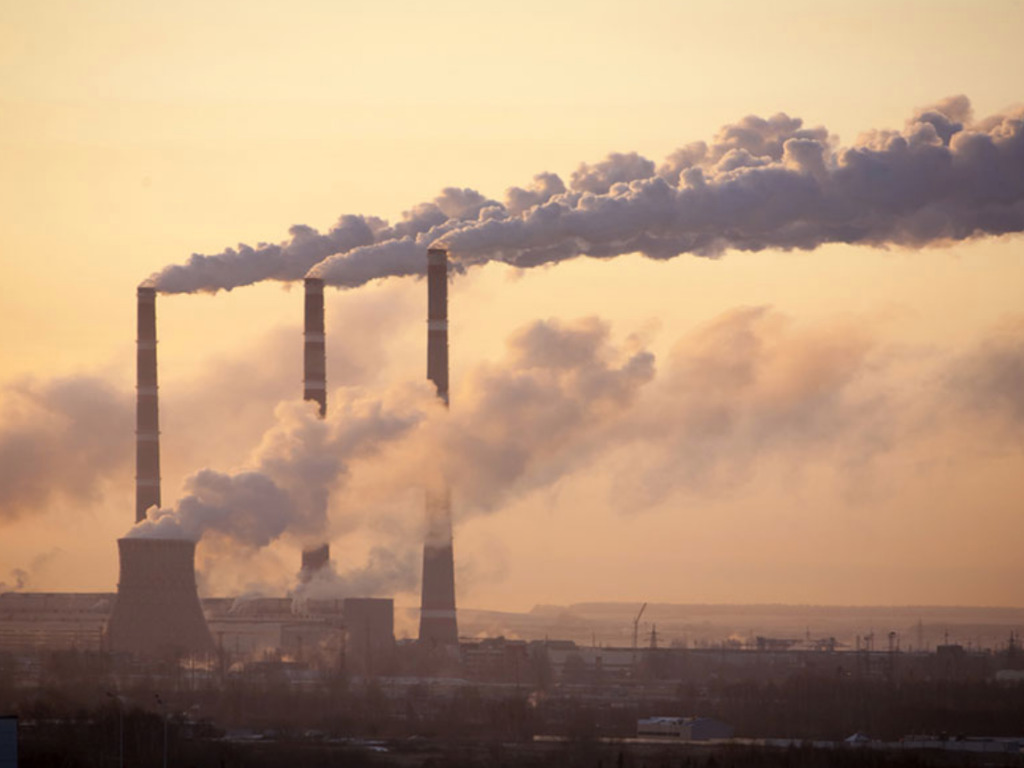New Study: Food Systems Responsible For 34% Of Human-Caused GHG Emissions, Not 25% As Previously Thought
5 Mins Read
Until now, the general scientific consensus was that global food systems were responsible for 25% of all human-caused greenhouse gas (GHG) emissions, but according to new study published in the peer-reviewed journal Nature Food featuring EDGAR-FOOD, the first database to break down emissions from each stage of the food chain for every year starting from 1990 to 2015, the figure is closer to 34%. In addition, the study highlights the emissions progression of rapidly industrialising countries, and includes some surprising conclusions- for instance, packaging is emissions than food miles.
Between 1990 and 2015, global food production increased 40% and the findings show that 71% of food emissions in 2015 resulted from agriculture and “associated land use and land-use change activities” (LULUC for short) and the CO2 accounts for around half of food-related emissions, while methane (CH4) amounted to 35% that resulted from livestock production, farming, and waste treatment.
The EDGAR-FOOD database is the first of its kind, providing data on CO2, CH4, nitrous oxide (N2O), and fluorinated gas emissions released by each sector and country.
The data shows that land use and land-use change activities are the second-largest contributor and are responsible for one-third of total food system emissions, due to carbon losses from deforestation, degradation of soils, including peatlands.
The paper also highlights that in 2015, 27% of emissions from food came from ‘industrialized countries’, or developed countries, with the remaining 73% coming from ‘developing countries’.

Food system emissions as a proportion of total carbon budgets can vary greatly depending on the country, from 14% to 92% emissions. In industrialised countries, for instance, around 24% of the countries’ total emissions came from their food systems according to the data, compared to much higher percentages for developing countries.
Further, the researchers found that the share of emissions from developing countries’ food systems’ decreased from around 68% in 1990 to 38% in 2015. This is not necessarily mean a positive. While the authors attribute some of the decrease to a huge reduction in land-based emissions thanks to improvements in deforestation practices, it also points to a significant increase in non-food emissions; for example, the study shows that retail sector emissions increased by up to 4 times in the U.S. and Europe between 1990 and 2015.
The study highlights Asia as the highest contributor to global food emissions when measured by continent – producing 35% of global food system emissions in 1990 and 49% in 2015.
Using the EDGAR-FOOD system, the researchers sorted the emissions into various stages of food production like those that take foodstuffs to the ‘farm gate’, fishing, aquaculture, agriculture, and emissions from inputs such as fertilisers contributing 39% of total food system emissions.
According to data, food production uses up half of the Earth’s habitable land and a 2019 report from the Intergovernmental Panel on Climate Change (IPCC) predicted that between 21-37% of global emissions are attributed to food systems.
In an interview with Carbon Brief, University of Oxford’s Dr John Lynch, who researches the climate impacts on food said: “It has often been hard to get fully detailed coverage across the whole food system” and this new paper is a great resource.”
Director of programmes at the Consultative Group on International Agricultural Research (CGIAR), Dr Sonja Vermeulen, said of EDGAR: “this is an excellent database and set of analytic tools to signpost the way forward for food”.
Vermeulen added that this while she had published “perhaps the first estimate of total food system emissions” around a decade ago, finding that food systems accounted for one-third of total global emissions, roughly the same as the new study, her conclusions were “based on much rougher data and calculations” and that “it is great to see the figure grounded much more strongly in evidence and detail”.
While emissions from food rose by an average of 14% between 1990 and 2015 on a global scale, in China, these emissions increased by 41%. China’s emissions further rose due to poor waste management, leading to a 50% increase of overall emissions from developing countries.
Emissions from energy, including electricity, heat and fuels in agriculture, increased by 15% between 1990 and 2015 along with an increase of 50% in Africa, Latin America and Asia.
Interestingly, the authors found that ‘food miles’ contribute less to food emissions compared to packaging, and 96% of the emissions from transporting food either come from local or regional transport, not international transport.
Recently, the Fairtrade Foundation held an online festival to highlight the impact that the climate emergency will have on food supplies and farmers, with workshops and tons of activities designed to educate and inform people about the climate crisis and what we can do to consume more ethically and sustainably.
Back in June, the United Nations secretary-general António Guterres had released his latest policy brief on the impact of the coronavirus pandemic on global food security and nutrition where he stressed that the world is at a crossroads where hundreds of millions of people are facing hunger and malnutrition, while disruptions in the food chain in developed countries have led to enormous food waste. He urged for the world to focus on reshaping and rebuilding a resilient food system to combat the public health crisis as well as the climate emergency. “Our food systems are failing, and the Covid-19 pandemic is making things worse,” said Guterres.
In another recent report on global food production and biodiversity, experts say that a mass shift to plant-based diets is crucial to mitigate the effects of the degradation of natural habitats and species extinction.
As the researchers write: “Without reform of our food system, biodiversity loss will continue to accelerate. Further destruction of ecosystems and habitats will threaten our ability to sustain human populations.”
Lead image courtesy of You Matter.



